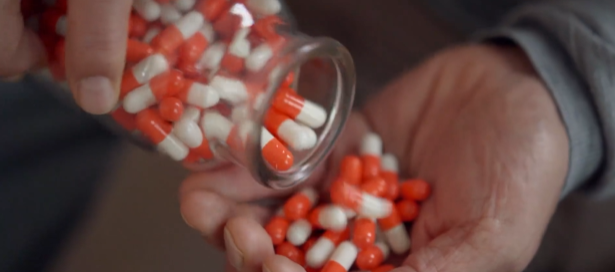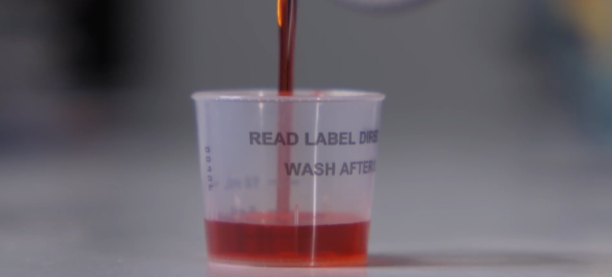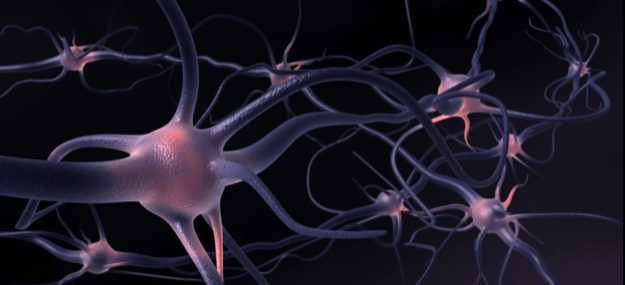Author: Well.J「Wang Ge, good brother, can you help me with something?」 I was eating when I almost spat out my food upon seeing the message. I confirmed repeatedly that it was indeed my high school bully, Li Jie, who once punched me into a panda eye, and then I replied with both hands holding my phone properly. 「Just let me know if you need anything.」 「I remember your hospital’s psychiatry department is quite good, right? Do you know any directors or teachers there that you could introduce me to? Preferably someone who can admit quickly.」 「I’m not very familiar with psychiatry, but I can ask around for you.」 I bit my chopsticks, unable to resist my curiosity: 「So, who is it?」 After a long pause, the reply came back: 「My sister, the one you met in high school.」 At that moment, I felt a jolt in my brain, like seeing a question on an exam that I had just reviewed the night before but couldn’t remember the answer to. However, I didn’t think much of it and chatted for a bit before heading to my shift. Unfortunately, before I could update my chat history with her, I ran into Li Jie pushing her unconscious sister into the emergency room. 01. 「What’s the patient’s condition?」 As I followed Teacher Liu to receive the patient, I saw a panicked Li Jie, and I started to panic too. The patient was brought in by ambulance and was already unconscious, experiencing continuous seizures, with elevated temperature and blood pressure, and a rapid heart rate. Upon examination, the patient also exhibited signs of muscle rigidity; when I pressed down on her legs, they trembled continuously. When Teacher Liu attempted to ask her, 「Do you know what’s happening to you? Do you know where you are?」, the patient incoherently shouted, 「Someone is trying to harm me, someone wants to kill me…」 and immediately began to vomit. I quickly gathered the medical history while Teacher Liu skillfully wrote the medical orders next to me. 「Xiao Wang, please help my sister!」 Li Jie grabbed me, her emotions a bit agitated. 「How did your sister faint? When did it happen? What was she doing before that?」 My mind was a mess, and I blurted out everything that came to mind without any logic. 「I was working in the living room when I suddenly heard a noise. I went in and found her fainting on the floor, convulsing! I immediately called 120…」 「It was probably less than an hour ago…」 As Li Jie spoke, she began to cry, and I couldn’t control myself. It was only when Teacher Liu came over to take my place that I managed to ask some useful questions. Suddenly, I remembered, this sister, I had indeed met before. Not in high school, but a month ago. That night, it was also my turn to be on duty. The patient brought to the emergency room was her mother, with symptoms very similar to this time, but milder, also fainting and convulsing. The patient, a 21-year-old female college student, had convulsed twice in the past ten minutes. According to her mother, this was her first episode, and she had been healthy prior, 「with no underlying diseases and no medication history.」 Symptomatic treatment was given, blood tests were done, and an emergency CT scan was performed, but no clear cause was found. The doctor who was supervising me diagnosed it as a seizure and prescribed antiepileptic medication for the patient to take home as directed. 02. Thinking of this, I immediately asked, 「Did she take the antiepileptic medication prescribed last month?」 As soon as I spoke, both Teacher Liu and Li Jie turned to look at me. 「What antiepileptic medication? My sister only takes antidepressants.」 Li Jie looked at me confused. 「Oh, depression! Right, you asked me about psychiatry last time!」 Teacher Liu, disapproving of my startled reaction, continued to ask about her medical history and then highlighted some key points for me. The patient had been diagnosed with depression for over 4 years, and according to family descriptions, she had shown symptoms of decreased willpower, lack of concentration, and feelings of hopelessness since middle school. After being diagnosed in high school, she had been regularly monitored and medicated. Based on the patient’s current symptoms, Teacher Liu and I highly suspected that the patient had attempted to overdose on medication to commit suicide. Therefore, I quickly requested an urgent psychiatric consultation and conducted a blood concentration check for the antidepressant medication.  Image source: Original case video The blood test results for the antidepressant medication: negative. This left us all stunned, as we had highly suspected an overdose, yet no trace of the medication was found in her system. 「Are you sure your sister was taking her medication regularly? She came to the emergency room last month and was prescribed antiepileptic medication, but she didn’t take it? By the way, did your mother know about her depression?」 Li Jie was confused by my barrage of questions. She told me that her sister had kept her depression diagnosis a secret from their parents, which was why we hadn’t gathered any information during the last emergency visit.But whether it was the antiepileptic or antidepressant medication, she had never seen her sister take any of it. At this point, I was already feeling overwhelmed, thinking, 「Sister, if you’re unclear about the medication history, just tell me directly, don’t give me vague answers.」 Just then, Li Jie suddenly pulled out two empty bottles from her bag and handed them to me. 「My sister has been drinking this syrup occasionally since high school. I thought she was just coughing, so I didn’t pay much attention. But I found these in her trash can while waiting for the ambulance today; she must have drunk them today. Could this be related?」 「I also found some purchase records for this medication on her phone, but they were capsules.」 I took a look and found two empty bottles of cough syrup, with the words 「Dextromethorphan」 glaring at me. However, I hadn’t yet realized the connection to the patient when more bad news came in. 「The patient’s temperature is not coming down, and her liver and kidney function indicators are very poor; we recommend immediate transfer to ICU!」 The rapid progression of her condition left us puzzled until Teacher Liu saw the empty bottles in my hand. 「Who drank this?」 「According to the family, it was likely the patient who drank it before the onset of her symptoms.」 「Did she drink two bottles at once?」 「Yes…」 Upon hearing this, Teacher Liu dashed to the computer with a speed I had never seen before and stopped a certain medical order—Ondansetron prescribed for nausea. 03. At this point, Teacher Liu and I finally began to clarify our thoughts. 「It seems the patient did not take the prescribed antidepressants as directed; moreover, she obtained some mental solace from other sources.」 I raised my little head, which I had just checked with the medication assistant, 「So the patient was using Dextromethorphan as a substitute for her antidepressants to achieve a euphoric effect? And then became addicted, which led her to drink two bottles this time?」 Teacher Liu pulled a sheet of paper from the printer and a pen from my pocket and began to explain to me. Dextromethorphan (DM) is the right-handed isomer of hydroxymorphinan, widely used in clinical cough treatment for over 40 years due to its non-narcotic central cough suppressant effect.
Image source: Original case video The blood test results for the antidepressant medication: negative. This left us all stunned, as we had highly suspected an overdose, yet no trace of the medication was found in her system. 「Are you sure your sister was taking her medication regularly? She came to the emergency room last month and was prescribed antiepileptic medication, but she didn’t take it? By the way, did your mother know about her depression?」 Li Jie was confused by my barrage of questions. She told me that her sister had kept her depression diagnosis a secret from their parents, which was why we hadn’t gathered any information during the last emergency visit.But whether it was the antiepileptic or antidepressant medication, she had never seen her sister take any of it. At this point, I was already feeling overwhelmed, thinking, 「Sister, if you’re unclear about the medication history, just tell me directly, don’t give me vague answers.」 Just then, Li Jie suddenly pulled out two empty bottles from her bag and handed them to me. 「My sister has been drinking this syrup occasionally since high school. I thought she was just coughing, so I didn’t pay much attention. But I found these in her trash can while waiting for the ambulance today; she must have drunk them today. Could this be related?」 「I also found some purchase records for this medication on her phone, but they were capsules.」 I took a look and found two empty bottles of cough syrup, with the words 「Dextromethorphan」 glaring at me. However, I hadn’t yet realized the connection to the patient when more bad news came in. 「The patient’s temperature is not coming down, and her liver and kidney function indicators are very poor; we recommend immediate transfer to ICU!」 The rapid progression of her condition left us puzzled until Teacher Liu saw the empty bottles in my hand. 「Who drank this?」 「According to the family, it was likely the patient who drank it before the onset of her symptoms.」 「Did she drink two bottles at once?」 「Yes…」 Upon hearing this, Teacher Liu dashed to the computer with a speed I had never seen before and stopped a certain medical order—Ondansetron prescribed for nausea. 03. At this point, Teacher Liu and I finally began to clarify our thoughts. 「It seems the patient did not take the prescribed antidepressants as directed; moreover, she obtained some mental solace from other sources.」 I raised my little head, which I had just checked with the medication assistant, 「So the patient was using Dextromethorphan as a substitute for her antidepressants to achieve a euphoric effect? And then became addicted, which led her to drink two bottles this time?」 Teacher Liu pulled a sheet of paper from the printer and a pen from my pocket and began to explain to me. Dextromethorphan (DM) is the right-handed isomer of hydroxymorphinan, widely used in clinical cough treatment for over 40 years due to its non-narcotic central cough suppressant effect.  Image source: Wikipedia Research indicates that long-term use of Dextromethorphan at therapeutic doses does not actually lead to addiction or tolerance.However, Dextromethorphan is an over-the-counter medication, and there have been increasing reports of abuse in recent years. In China, there was also a case of a 17-year-old female student who had 「repeatedly abused Dextromethorphan for 2 years」, reporting feelings of dizziness, a blank mind, and a release of anxiety after taking the medication, while withdrawal led to irritability, headaches, insomnia, and other negative emotional experiences. The medication itself is not the problem, but discussing efficacy or side effects without considering dosage is nonsensical.—High doses of Dextromethorphan can significantly inhibit the reuptake of serotonin (5-HT) in the body and promote the release of 5-HT, repeatedly stimulating the brain to produce excitatory signals, leading to symptoms such as tremors, muscle rigidity, and seizures in patients. This is very similar to our patient’s situation. According to the medical history, our patient had been using Dextromethorphan since high school and continued to do so. Recently, she even replaced the lower concentration cough syrup with Dextromethorphan capsules, leading to an overdose of the medication in her system.
Image source: Wikipedia Research indicates that long-term use of Dextromethorphan at therapeutic doses does not actually lead to addiction or tolerance.However, Dextromethorphan is an over-the-counter medication, and there have been increasing reports of abuse in recent years. In China, there was also a case of a 17-year-old female student who had 「repeatedly abused Dextromethorphan for 2 years」, reporting feelings of dizziness, a blank mind, and a release of anxiety after taking the medication, while withdrawal led to irritability, headaches, insomnia, and other negative emotional experiences. The medication itself is not the problem, but discussing efficacy or side effects without considering dosage is nonsensical.—High doses of Dextromethorphan can significantly inhibit the reuptake of serotonin (5-HT) in the body and promote the release of 5-HT, repeatedly stimulating the brain to produce excitatory signals, leading to symptoms such as tremors, muscle rigidity, and seizures in patients. This is very similar to our patient’s situation. According to the medical history, our patient had been using Dextromethorphan since high school and continued to do so. Recently, she even replaced the lower concentration cough syrup with Dextromethorphan capsules, leading to an overdose of the medication in her system.  Image source: Original case video Comparing this to typical cases of serotonin syndrome, which occurs due to the excessive concentration of serotonin caused by the use of serotonergic drugs (such as chlorpromazine, fluoxetine, serotonin, etc.) or the combination of serotonergic drugs and monoamine oxidase inhibitors, the clinical manifestations can vary:
Image source: Original case video Comparing this to typical cases of serotonin syndrome, which occurs due to the excessive concentration of serotonin caused by the use of serotonergic drugs (such as chlorpromazine, fluoxetine, serotonin, etc.) or the combination of serotonergic drugs and monoamine oxidase inhibitors, the clinical manifestations can vary:
Changes in mental state and behavior (hypomania, agitation, confusion, disorientation, etc.);
Changes in motor system function (myoclonus, muscle rigidity, tremors, hyperreflexia, ankle clonus, etc.);
Autonomic nervous system dysfunction (fever, diarrhea, headache, tremors, tachycardia, shortness of breath, blood pressure changes, dilated pupils, etc.).
Although the mechanism of addiction to high doses of DM is not yet clear, one point to note is that Dextromethorphan, like phencyclidine (PCP) and ketamine (K powder), is an N-methyl-D-aspartate (NMDA) receptor antagonist, with the latter two being more widely known. PCP is a type of drug classified as a psychoactive substance that can cause changes in perception and emotion, leading to self-distortion and thought fragmentation, detaching individuals from reality, and sometimes causing psychotic behavior. DM has a high affinity for PCP receptors, and excessive doses can lead to excitement, mental confusion, respiratory depression, and ataxia. Taking a single dose of DM exceeding 120mg or 2mg/kg (5-10 times the therapeutic dose) can produce PCP-like hallucinogenic effects. It is speculated that because DM can produce pharmacological effects similar to phencyclidine, abusers may experience positive cognitive and emotional changes after taking DM in large doses, which motivates them to take the medication again. Additionally, literature has reported that withdrawal from DM can lead to symptoms such as anxiety, restlessness, headaches, dizziness, insomnia, and runny nose. If this cycle continues, it can lead to drug dependence on DM. 「I think this is why the patient doesn’t take her medication as prescribed but prefers to drink this cough syrup.」 Teacher Liu sighed, 「It’s also important to note that Dextromethorphan can inhibit the reuptake of norepinephrine, leading to increased heart rate, elevated temperature, and high blood pressure in patients.」 「I see now!」 I nodded in realization, 「So could Dextromethorphan also lead to organ failure in the patient based on her test results?」 Thinking of this, Teacher Liu and I were puzzled again. 「She may have taken other medications; call the family over to ask again.」 Well, we didn’t get much information from questioning, but Li Jie and I searched her sister’s phone and finally found a few search records—「Can drinking cough syrup be addictive?」、「Can cough syrup be taken with XX?」、「Are the imported health products sold by XX live stream effective for depression?」 and so on. I immediately reported this to Teacher Liu, and it seemed this was one of the reasons for the sudden deterioration of the patient’s liver and kidney function.04.After clarifying my thoughts, I remembered the medical order that Teacher Liu had stopped and continued to discuss this issue with him. Ondansetron is a highly selective 5-HT receptor antagonist that alleviates nausea and vomiting symptoms by blocking 5-HT3 receptor stimulation in the vagus nerve, which is particularly important for treating nausea and vomiting during chemotherapy with cytotoxic drugs. However, for a patient whose 5-HT levels are already excessive, this is like adding fuel to the fire. 「I never thought it would turn out this way; it seems I need to be more cautious when writing medical orders in the future.」  Image source: Original case video Later, Li Jie’s sister stayed in our hospital for about half a month. During that time, I visited her a few times and finally heard the complete story from her. Initially, when the patient was diagnosed with depression, she was taking her medication as prescribed, but later felt the effects were too slow and stopped. Coincidentally, she heard from friends that drinking a whole bottle of cough syrup could improve her symptoms, so she tried it. According to her description, at first, she felt light and carefree after drinking it, and all her worries disappeared. However, once she stopped, feelings of loneliness and despair doubled, leading her from intermittent drinking to needing to drink a bottle every day. Last month, when she couldn’t find cough syrup at the pharmacy, she directly purchased Dextromethorphan capsules online, drank them, and fainted, leading to her mother bringing her to the emergency room. Unfortunately, at that time, her mother was completely unaware of her condition, so this dangerous situation could have been avoided. Later, the patient also tried various unknown health products, and on the day of the incident, she drank two bottles of cough syrup, ultimately landing herself in the ICU. Hearing this, I had mixed feelings; on one hand, I wanted to criticize her for being irresponsible with her body and not following medical advice, but on the other hand, I realized I was not in her shoes and could not empathize with her despair and struggle. On the other hand, I reflected on my own diagnostic process during the two emergency visits, realizing I had missed many key pieces of information that could have led to a serious mistake. Especially due to the nature of the illness, after receiving answers from the family, I should have verified with the patient herself afterward, but I failed to do so. Often, when we ask about medication history, we simply ask, 「Do you take any medications regularly?」, but this case reminded me that we need to ask in detail and pay more attention to medication dosages, otherwise, it’s not only easy to miss information but also irresponsible regarding the medical orders we write.(Planning: carollero, gyouza) Thanks to Bernard Hsu from the University of Illinois (@Chubbyemu) for providing and authorizing the use of this case Special thanks: This article has been professionally reviewed by Dr. Gao Bin, attending physician of the Psychiatry Department at the Second Affiliated Hospital of Zhejiang University School of Medicine
Image source: Original case video Later, Li Jie’s sister stayed in our hospital for about half a month. During that time, I visited her a few times and finally heard the complete story from her. Initially, when the patient was diagnosed with depression, she was taking her medication as prescribed, but later felt the effects were too slow and stopped. Coincidentally, she heard from friends that drinking a whole bottle of cough syrup could improve her symptoms, so she tried it. According to her description, at first, she felt light and carefree after drinking it, and all her worries disappeared. However, once she stopped, feelings of loneliness and despair doubled, leading her from intermittent drinking to needing to drink a bottle every day. Last month, when she couldn’t find cough syrup at the pharmacy, she directly purchased Dextromethorphan capsules online, drank them, and fainted, leading to her mother bringing her to the emergency room. Unfortunately, at that time, her mother was completely unaware of her condition, so this dangerous situation could have been avoided. Later, the patient also tried various unknown health products, and on the day of the incident, she drank two bottles of cough syrup, ultimately landing herself in the ICU. Hearing this, I had mixed feelings; on one hand, I wanted to criticize her for being irresponsible with her body and not following medical advice, but on the other hand, I realized I was not in her shoes and could not empathize with her despair and struggle. On the other hand, I reflected on my own diagnostic process during the two emergency visits, realizing I had missed many key pieces of information that could have led to a serious mistake. Especially due to the nature of the illness, after receiving answers from the family, I should have verified with the patient herself afterward, but I failed to do so. Often, when we ask about medication history, we simply ask, 「Do you take any medications regularly?」, but this case reminded me that we need to ask in detail and pay more attention to medication dosages, otherwise, it’s not only easy to miss information but also irresponsible regarding the medical orders we write.(Planning: carollero, gyouza) Thanks to Bernard Hsu from the University of Illinois (@Chubbyemu) for providing and authorizing the use of this case Special thanks: This article has been professionally reviewed by Dr. Gao Bin, attending physician of the Psychiatry Department at the Second Affiliated Hospital of Zhejiang University School of Medicine
【Note】
Dr. Gao Bin from the Psychiatry Department at the Second Affiliated Hospital of Zhejiang University School of Medicine Review Comments:
This case illustrates the importance of medication adherence. In clinical practice, some patients may rely on their life experiences to judge how to use medications, just like the patient in this case.Dextromethorphan itself is not the problem, but if taken recklessly or according to one’s own assumptions, it can lead to disastrous consequences. In reality, as doctors, we must carefully inquire about medical history, as this is the last line of defense; otherwise, there is a risk of iatrogenic accidents. Image source: Tuchong CreativeReferences: [1]. @Chubbyemu YouTube video, details provided by Chubbyemu via email[2]. “Psychiatry”

